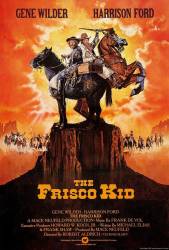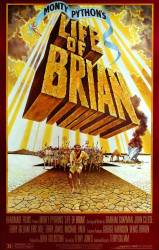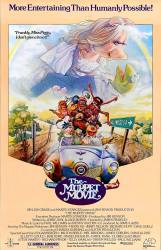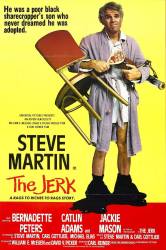
Question: When Avram is departing on his horse after meeting Tommy, Tommy asks him if he speaks any Mexican. Abram, who doesn't, is puzzled by the question and asks why...to which Tommy responds "Just curious." I've always assumed that Tommy was mocking him cause he was unknowingly riding south and headed for Mexico instead of West towards San Francisco. Am I right?
Answer: Right on the nose.

Question: When Brian is about to be crucified, soldiers arrive with news of his release. The soldiers ask for Brian, and everybody shouts "I'm Brian." Is this a parody of the "I'm Spartacus" episode in the Kirk Douglas/Stanley Kubrick film of "Spartacus"? If so, would this support my feeling that Life Of Brian is primarily a parody of classical/biblical 'epic' films?
Answer: Actually, no, the primary goal of "Life of Brian" was not to parody biblical films. Terry Gilliam has stated that the "important" objective of the movie was "to offend a lot of people," particularly "Jews and Christians, because they're easy to push around." Gilliam further said that, at the same time, they were "very cautious not to offend Muslims, because they're the dangerous ones." Both Gilliam and John Cleese have also said that, while the Pythons took care to avoid blasphemy (not directly mocking Jesus of Nazareth, with whom the Pythons had no quarrel), they fully intended that the film be heretical (in defiance of Catholic Church doctrine and dogma). Make no mistake, "Life of Brian" is not supposed to be a lighthearted parody of biblical films; it's supposed to be a sharp stick in the eye to the Roman Catholic Church.
Answer: The scene is a parody of the scene in "Spartacus" (although they are saying "I am Brian" for completely different reasons.) However, the film is meant to be a satire on religion itself and not a parody of epic films. The Pythons did a lot of research to try and accurately portray 1st century Judea, which is why it may look like a biblical epic, but I can't recall any biblical epics they parodied. At the time it was considered blasphemous, and not a parody, and banned in several areas in the UK and some countries. Although the Pythons argued it's not blasphemy but heresy.
Answer: You are indeed correct. It is a parody of the "Spartacus" scene but mostly of religion.
Perhaps not so much a parody of "Spartacus" as a tribute to Stanley Kubrick. Monty Python writer Terry Gilliam was very much a fan of Kubrick films and became friends with Kubrick in the 1980s. Gilliam claimed that Kubrick had even spoken with him about making a sequel to Kubrick's "Dr. Strangelove" (with Gilliam as director). Chances are, the "Spartacus" allusion was part of Gilliam's contribution to the "Life of Brian" screenplay, a tip-o-the-hat to Stanley Kubrick.

Question: Does anyone know how the effect of Kermit riding the bicycle was done?
Answer: The closest thing to an answer is here, Martin Becker's obituary. His family states that it was a robotic Kermit on a bicycle. Outside of that, everyone else associated with the movie has been quiet on the subject. http://www.fridaythe13thfilms.com/saga/part5/martinbecker.html.
They used gyros in the wheels - Martin Becker made the first self-driving bike for that movie-now the same tech is used in the self-driving bikes seen in the Netherlands. -Diana Becker, Martin's widow.

Question: Why is this movie called "The Jerk"? Navin's naive, not a jerk.
Answer: Navin self-applies the "Jerk" epithet early in the film, using it not in the sense of someone obnoxious or mean (as it is used in most cases), but in the sense of a stupid person. He's saying he blames himself and his lack of intelligence (though, as you say, it is usually simple naïveté) for ending up where he is (broke, homeless).

Answer: Yes.
Tobin OReilly